- Home
- Salman Rushdie
Quichotte Page 40
Quichotte Read online
Page 40
He was asleep. She shook him awake to show him the sign. He woke up very quickly and sat up very straight. And in that instant when he gazed upon the California sign a lifetime of delusion fell away from him, and he saw clearly at last, no longer foolish or mad. Perhaps what they said was true: that only at the end of the quest did the seeker understand how deeply rooted in error his journey had been, only at the end of the narrow road to the deep north did the Japanese poet perceive that there was nothing to be learned in the deep north, only at the summit of Mount Qaf which they had climbed in search of their winged god did the thirty bird-pilgrims see that they themselves were the god they were looking for, and only when one saw the sign saying WELCOME did one comprehend the impossibility of the welcome one had sought, and with that comprehension came a new clarity, a return to sanity, and even a kind of wisdom.
So, now that Quichotte was in full possession of his senses, there were things he needed to say. “My quest for you,” he told Miss Salma R, “has not been for you alone, but also for my own compromised goodness and virtue. I see it now. By attaining you—the impossible!—I thought I might validate my life. By becoming worthy of you I might feel worthy of being myself.”
“That’s quite a speech,” she said.
“What I hoped for is indeed beyond hope,” he said. “I was out of my mind, looking for this year’s birds in last year’s nests. And all around me America—and not only America, the whole human race!—yes, even our India!—was also losing its reason, its capacity for ethics, its goodness, its soul. And it may be, I can’t say, that this deep failure brought down upon us the deeper failure of the cosmos. But I at least have woken up. I am sane again, and if the story of the world is coming to an end, and maybe our stories will end with it, then let us make that a happy ending, a peaceful coming to rest in a good place. But I still hope we may save ourselves. At least I hope that we may try.”
“Why would we have driven like lunatics across America,” she asked him, “if not to try?”
“Then,” he said, “call him.”
“Call whom?”
“You have his number, I’m sure. The genius. You need to talk to him.”
“Yes. I’ll pull over,” she said.
“We can’t go in the front door,” Quichotte said. “There’s a security ring and a crowd of hysterical people. You need to ask him about access. There must be another way.”
“Why would he tell me?”
“You are Salma,” he said. “Of course he will invite you in.”
There was no time to lose. The great voids roared in the sky, eating the stars.
* * *
—
IS IT YOU? YOU’RE REALLY HERE?
Yes, Dr. Evel, it’s really me.
“Dr. Evel.” Now I know it’s you.
Dr. Awwal Sant. I’m with a desi friend. Can we come in? Three of us is a party.
The place is surrounded. You know that.
Tell me what to do.
Don’t come anywhere near CentCorp. Follow the highway to Boyes Hot Springs. I’ll send a car to meet you at the Cochon Volant BBQ.
There’s a back way in?
There’s a tunnel. Go down the tunnel toward the light.
* * *
—
EVEN BEFORE HE HAD completed his journey through the tunnel, Quichotte, now, at the last, the clearest minded and sanest of men, had understood that this was an earthly version of the same tunnel of which people speak, which appears at the end of life, and in which at a certain point one may have the choice of turning back toward the beautiful temporariness of the world, or of going forward into the purity of the Eternal. He understood, furthermore, that when the entire fabric, the warp and weft of everything, was unraveling, when the stars were dying and history itself was coming to an end, then the possibility of taking one magic step through a gateway and starting over in a new, Edenic location was a fairy tale, not to be taken seriously. In other words, there was no escape from Death, not even if one hurtled across a continent in search of Life, for there at the end of the journey was the hooded figure waiting for you with open arms.
Nevertheless, he thought, it was better to play the game to the end, not to knock the black king over and resign but to wait for the checkmate move, to fight against the advancing white pieces until they could no longer be held back, because there was an endless supply of white chess pieces, but a strictly limited number of black kings. So at the end of the tunnel he got out of his old car, knowing he would never drive it again, silently thanked it for its years of unostentatious reliability, and went around to open the door for Miss Salma R, as a gentleman should. The liveried chauffeur who had driven the lead vehicle guided them toward a small railway car, in which they were carried through the interior organs of CentCorp to the room containing the brain.
CentCorp was all light, its interior space composed, or so it appeared to Quichotte, of great illuminated canyons pockmarked with small areas of relative darkness where, he guessed, actual human beings sat and did their work. He felt as if he were entering the sun itself, or at least the almost-as-radiant palace of the Sun King. Half blinded by the grandeur of the blazing white light, he failed to observe a single person until, at their journey’s end, their carriage door opened automatically and there to greet them was the Sun King himself, Dr. Evel, the scholar-entrepreneur and master of the NEXT gateway, Evel Cent.
“Welcome,” he said. “Welcome on this dark day.” The blaze enveloping him appeared designed to give the lie to his words, to set its brightness against the darkness of the times. He was dressed simply, in black T-shirt over black jeans, and looked to Quichotte oddly unimpressive with his slicked-back black hair and doctored smile, a B-list actor in an A-list part, a spear carrier whom events had thrust into the spotlight at the center of the stage. Awwal Sant reinvented as Evel Cent. He didn’t seem like the man to command the closing scenes of the drama. Yet here he was. There was nobody else. It was his show.
“Are you well?” he asked Salma. “We heard you almost…”
“Yes,” Salma answered. “But I decided to make a thrilling recovery and daredevil-drive across America in a matter of hours, defying Mad Max gangs and universe-eating black holes en route instead. That was option B.”
“I’m delighted, of course,” said Dr. Evel. “We all are, my dear.”
“Can nothing be done to reverse the decay?” Salma asked, changing the subject, and Quichotte saw that she was still in the grip of the optimistic fantasy that some scientific wand could be waved and things would go back to being as they had been before.
Evel Cent laughed, a weak little laugh, and then said I-told-you-so. “I am the last Cassandra of the human story,” he said. “I prophesied and nobody believed, and this time it’s not only Troy that will burn, but Sparta and Ithaca and all the Achaeans too.” Such self-aggrandizing talk, Quichotte thought, was pointless in the moment of crisis, when only action counted, and insisting on having been right was just narcissism. “I’m afraid nothing can be done,” Cent went on. “We are in the last moments, and I fear the hordes at the gates will not be saved.”
“Have you been sending people through?” Salma asked. “The NEXT terminal, is it working fine? How many people have gone through the gateway to the neighbor Earth? Do you have any contact with the other side?”
“Can we speak privately?” Evel Cent took her by the elbow and began leading her away from Quichotte, but she reached out and took the old man by the hand.
“My friend and I have made a long, dangerous, and tiring journey,” she said. “I’d like him to hear what you have to say.”
Then they entered one of the small areas of darkness, a glass door was shut behind them, and they were enclosed in a soundproofed space. “The truth is,” Evel Cent said, “that when I came on your show I perhaps exaggerated our situation for dramatic effect.”
“The dog,” Salma wanted to know. “Schrödinger. Is he safe?”
“I’m sorry.”
“He died?”
“I’m sorry. I made up the dog.”
“In plain English, then, you’ve got nothing,” Quichotte said. “Which, I’m assuming, is why you’re still here with the rest of us mortals, getting ready to face the music.”
“Is that right, Evel?” Salma asked. “NEXT doesn’t work?”
“It works,” Evel Cent said. “It will work. Everything about this is so radical, so post-Einsteinian, we’re having to make up the physics as we go along. The match to the neighbor Earth location has to be exact to an alarming number of decimal points. It’s just a question of getting a couple of equations to balance.”
“So it doesn’t work,” Salma said.
“There’s a story about Sir Isaac Newton,” Evel Cent told her. “He announced the theory of gravity before he’d done the math. He just knew he was right. And then he had a deadline, because he had to go down to London from Cambridge and deliver a lecture on the fully worked-out theory in front of an audience of his peers, and he worked day and night, and got the math right in time.”
“Was his deadline the end of the world?” Quichotte inquired.
“We will meet the deadline,” said Evel Cent. “In the coming hours.”
“I’d like to see the portal,” Salma said. “Will you bring us to where it is? Unless of course it’s at this stage still just a hole in your head.”
Evel Cent stiffened. “This way,” he said.
* * *
—
QUICHOTTE HAD IMAGINED SOMETHING out of a silent movie, some kind of Art Deco altar surrounded by crackling arcs of electricity, some sort of giant jukebox that played human beings instead of records. Circles of shining voltage would rotate around the person to be transported, moving up and down, crossing one another, down and up, until suddenly, accompanied by a reverberating clash of cymbals and a bright flash of light, the human figure would disappear.
The reality was banal. An empty room with bare walls, a glass window in one wall through which a control room filled with technology could be seen; more like a sound recording studio than an Expressionist fantasy. And at the far end of the empty room, a simple door. That was the Mayflower, the place where the dimensions joined, where the neighbor Earth rubbed up against this one. Just open the door and walk through. From one room into another. As simple as that.
Except that there was a bad connection.
Evel Cent explained. They had reliably established a number of things about the other reality: atmospheric composition, gravitational force, mean temperatures, all well within the range of what was tolerable. The balance of gases in the air was very close to our Earth’s, the g-force identical or near-identical to our own, and the climate was Earthlike. The only remaining issue was the fog.
Fog?
It had proved impossible to get a clear image of the other-Earth. It, or that part of it to which they had made a successful connection, was enveloped in a thick fog which they had been unable wholly to penetrate. CentCorp scientists had used their most sophisticated tools, looking through the NEXT connection at infrared and ultraviolet frequencies, using state-of-the-art radio imaging performed by their own alterations of the cameras mounted on space telescopes. Computer analyses of these tests indicated, with a high degree of certainty, that the place connected to was an enclosed interior space, either a domestic residence or a private office (though these notions of usage, Earth-centric as they were, the product of our own ideas about how space was used, were necessarily hypothetical). The nature and number of possible occupants was unclear.
“How great is the risk?” Quichotte asked.
“Once we have stabilized the connection,” Evel Cent told him, “which I’m hearing we will have successfully achieved momentarily, we evaluate the physical risk as low. But it must be said: travelers will arrive in an utterly alien world, not knowing the language or customs, having no wealth or assets to use, and will be at the mercy of the beings they encounter, and reliant on their own resourcefulness and wit to survive. As far as disease and illness, we can neither be certain of what infections our travelers may fall prey to, or indeed of what germs they may carry that may be harmful to their new hosts. First contact is not a sure thing.”
“So if we go, we go as refugees,” Quichotte said. “Pilgrims setting foot for the first time upon a new world, hoping the indigenous population will teach us how to survive there.”
“I’m wondering,” Salma said. “If others follow us, will they come as conquerors?”
The three of them were alone in the room with the door. Through the glass window, Quichotte could see the beginning of a commotion in the control room. Evel Cent cupped a hand around his earpiece, listened, and his face grew grim. “I have good news and bad news,” he said. “The good news is, the connection has been stabilized, so the NEXT gateway is open.”
“And the bad news?” Quichotte said.
“The deterioration outside has accelerated,” Evel Cent said. “The void phenomenon is spreading rapidly. We can’t know when it will, when it may, burst upon us.”
Quichotte understood that the commotion in the control room was caused by fear. The last moments were at hand.
“How does the door open?” he asked.
“Like a door,” Evel Cent said. “You turn the doorknob, and pull.”
“And you’re sure the connection is safe?”
“The connection is stable. On the other side, nothing is certain.”
“You go first,” Quichotte said.
“I’m not ready to go,” Evel Cent said. “I have to supervise the evacuation of my staff, and perhaps of some of the people outside. It’s my responsibility.”
“You go first,” Quichotte repeated, and there was a gun in his hand.
“Finally,” said the gun. “I thought you’d never ask.”
“You can’t be serious,” Evel Cent said.
“I’m very serious,” said Quichotte. “Before I bring Miss Salma to the gate, I need to see what happens.”
When the door was open they saw the gray fog.
“Very well,” said Evel Cent; and he turned; and lowered his head; and charged into the next world like a bull. And was gone.
* * *
—
WHAT VANISHES WHEN EVERYTHING vanishes: not only everything, but the memory of everything. Not only can everything no longer remember itself, no longer remember how it was when it still was everything, before it became nothing, but there is nobody else to remember either, and so everything not only ceases to exist but becomes a thing that never was; it is as if everything that was, was not, and moreover there is nobody left to tell the story, not the whole grand story of everything, not even the last sad story of how everything became nothing, because there is no storyteller, no hand to write or eye to read, so that the book of how everything became nothing cannot be written, just as we cannot write the stories of our own deaths, which is our tragedy, to be stories whose endings can never be known, not even to ourselves, because we are no longer there to know them.
Let us think of it this way. Here at the heart of a canyon of light an old man and the woman he loves stand in front of an open door. Who knows what lies beyond it? But on this side of the door, there’s hope. There may after all be a life after death. He grasps her hand. She squeezes his hand. A long quest comes to an end. Here they stand in the Valley of Annihilation, with the power to disappear into the universe. And just possibly into something new.
Quichotte, a sane man, understands that it won’t happen. But on this side of the door, it’s possible, for a few last moments, to set that knowledge aside, and believe.
“Come on,” he said to Salma. “Let’s go through.”
* * *
—
ON THE AUTHOR’S DESK, and on the mantelpiece in his office, stood thirteen modestly sized objects, carefully arranged, which made the room feel like home: a polished “found art” Chinese stone whose patterning resembled a landscape of wooded hills in the mist, a Buddha-like Gandharan head, an upraised wooden Cambodian hand with a symbol of peace in the center of its palm, two starlike crystals, one large, the other small, a Victorian locket inside which he had placed photographs of his parents, three other photographs depicting a childhood in a distant tropical city, a brass Edwardian English cigar cutter made to look like a sharp-toothed dragon, an Indian “Cheeta Brand” matchbox bearing the image of a prowling cheetah, a miniature marble hoopoe bird, and a Chinese fan. Without these objects around him, he couldn’t work. He picked up at least one of them once a day. And there was one more, too precious to display, which he kept in a drawer: a little silver ingot, an inch high, on which was engraved the map of unpartitioned India. This was his greatest talisman, his open-sesame, his magic lamp. He had caressed it this very day, before writing his final page.
Often at the end of a working day the Author would fall asleep at his desk, his forehead resting on the wood, bowed down before the computer screen as if performing some ancient rite of worship. So it was that, on this day of the ending, he was in a half-sleeping, half-waking state when he thought he saw a tiny door open at the very bottom of a corner of his room, less than half of half of half of a millimeter high, and through that door a bright light flowed, an intense pinpoint of light, as if it might be from a mousehole behind which a studious undersized mouse sat reading by a lamp; or, as it might also be, the light of another reality, another Earth, bleeding into his. And then a creature tumbled through the opening. He knew at once who and what it was. It was impossible but he knew. And now he also had an explanation for the fog. It was a question of scale. This world so gigantic compared to that. That other world, which he now understood to be the one he himself had made, was a miniature universe, perhaps captured under a glass dome—a snow globe without snow—which had begun to crack, so that its minuscule inhabitants had become desperate to escape. And here they were, bursting into his office, but tragically finding its air too thick for their tiny eyes to see through, their tiny lungs to breathe. He saw the first minute creature enter, gasp, and faint, its hope turning to despair in this new continuum inhabited by what to it were super-colossi, giant mastodons, able to crush it under their thumbs. The microscopic man, the creature of the Author’s imagination, had brilliantly done the impossible and joined the two worlds, had crossed over from the world of Fancy into the Author’s real world, but in this one he was unassimilable, helpless, puny, gasping for air, not finding it, choking, and so lost.

 Shame
Shame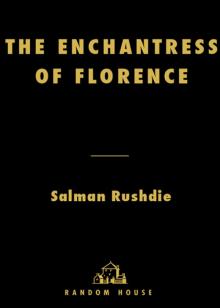 The Enchantress of Florence
The Enchantress of Florence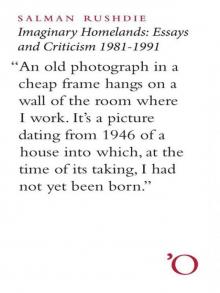 Imaginary Homelands: Essays and Criticism 1981-1991
Imaginary Homelands: Essays and Criticism 1981-1991 Joseph Anton: A Memoir
Joseph Anton: A Memoir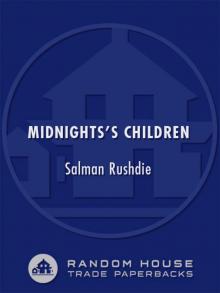 Midnight's Children
Midnight's Children East, West: Stories
East, West: Stories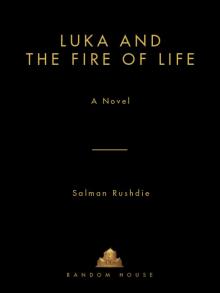 Luka and the Fire of Life
Luka and the Fire of Life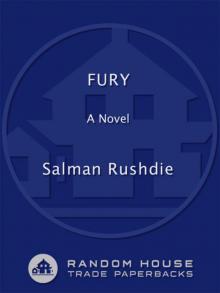 Fury Fury Fury
Fury Fury Fury Haroun and the Sea of Stories
Haroun and the Sea of Stories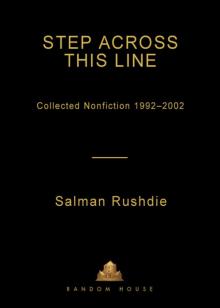 Step Across This Line: Collected Nonfiction 1992-2002
Step Across This Line: Collected Nonfiction 1992-2002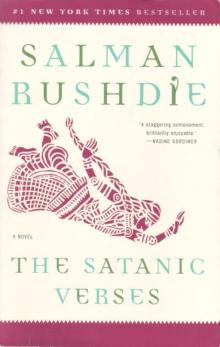 The Satanic Verses
The Satanic Verses The Moor's Last Sigh
The Moor's Last Sigh The Prophet's Hair
The Prophet's Hair The Ground Beneath Her Feet
The Ground Beneath Her Feet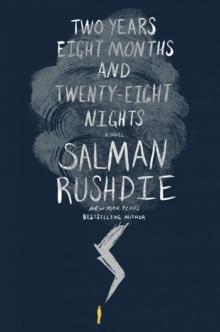 Two Years Eight Months and Twenty-Eight Nights
Two Years Eight Months and Twenty-Eight Nights Shalimar the Clown
Shalimar the Clown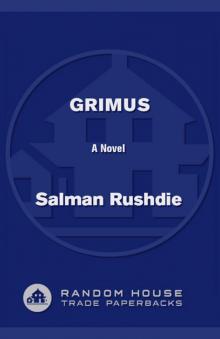 Grimus
Grimus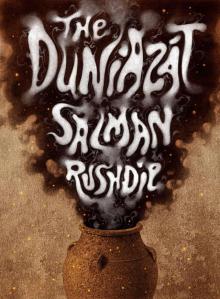 The Duniazát
The Duniazát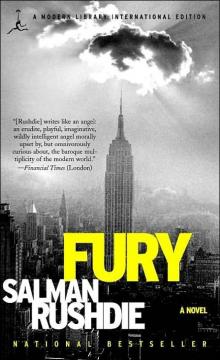 Fury
Fury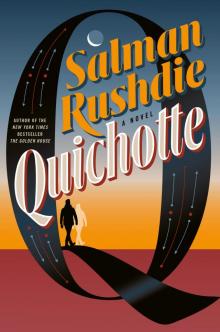 Quichotte
Quichotte The Jaguar Smile
The Jaguar Smile Joseph Anton
Joseph Anton Joseph Anton: A Memoir: A Memoir
Joseph Anton: A Memoir: A Memoir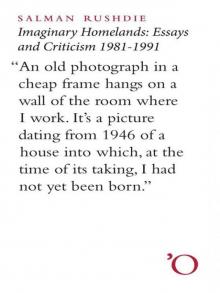 Imaginary Homelands
Imaginary Homelands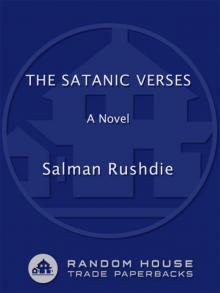 The Satanic Verses: A Novel
The Satanic Verses: A Novel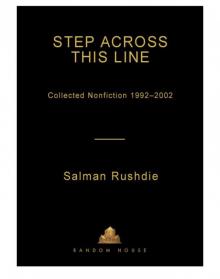 Step Across This Line
Step Across This Line East, West
East, West